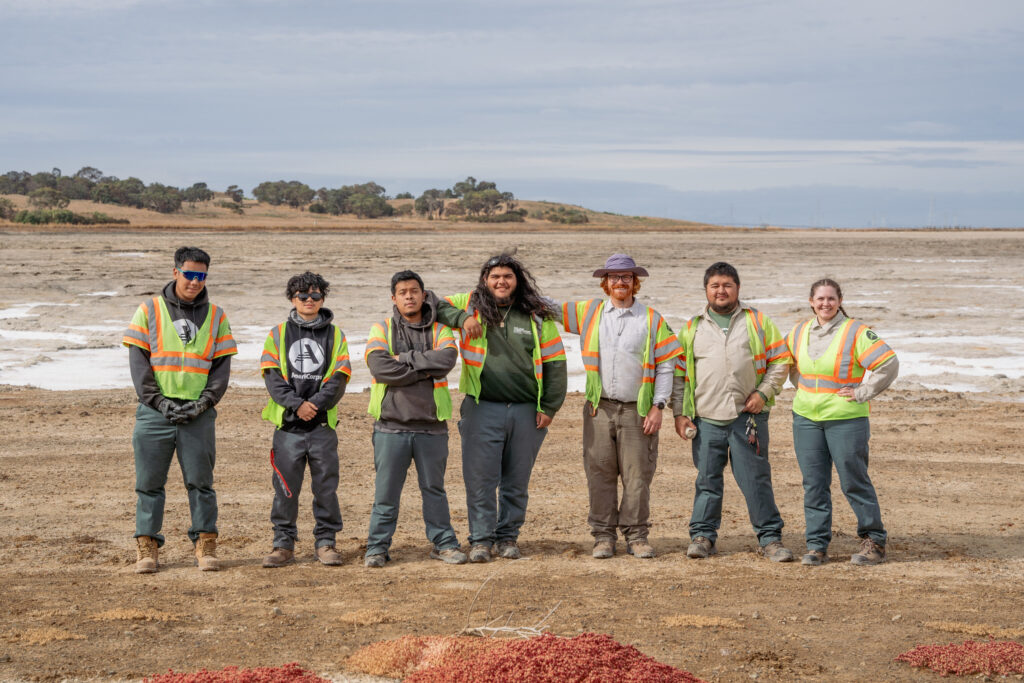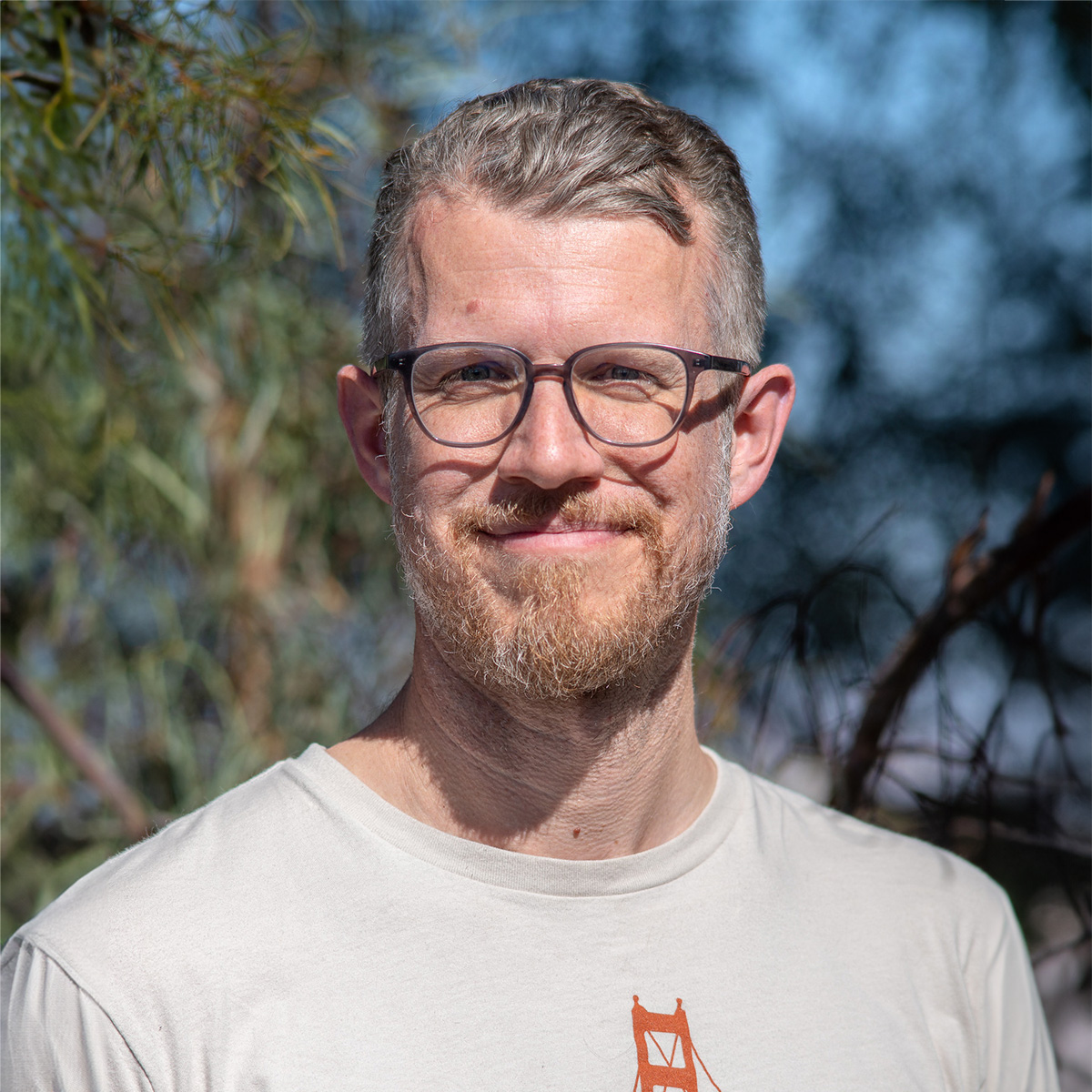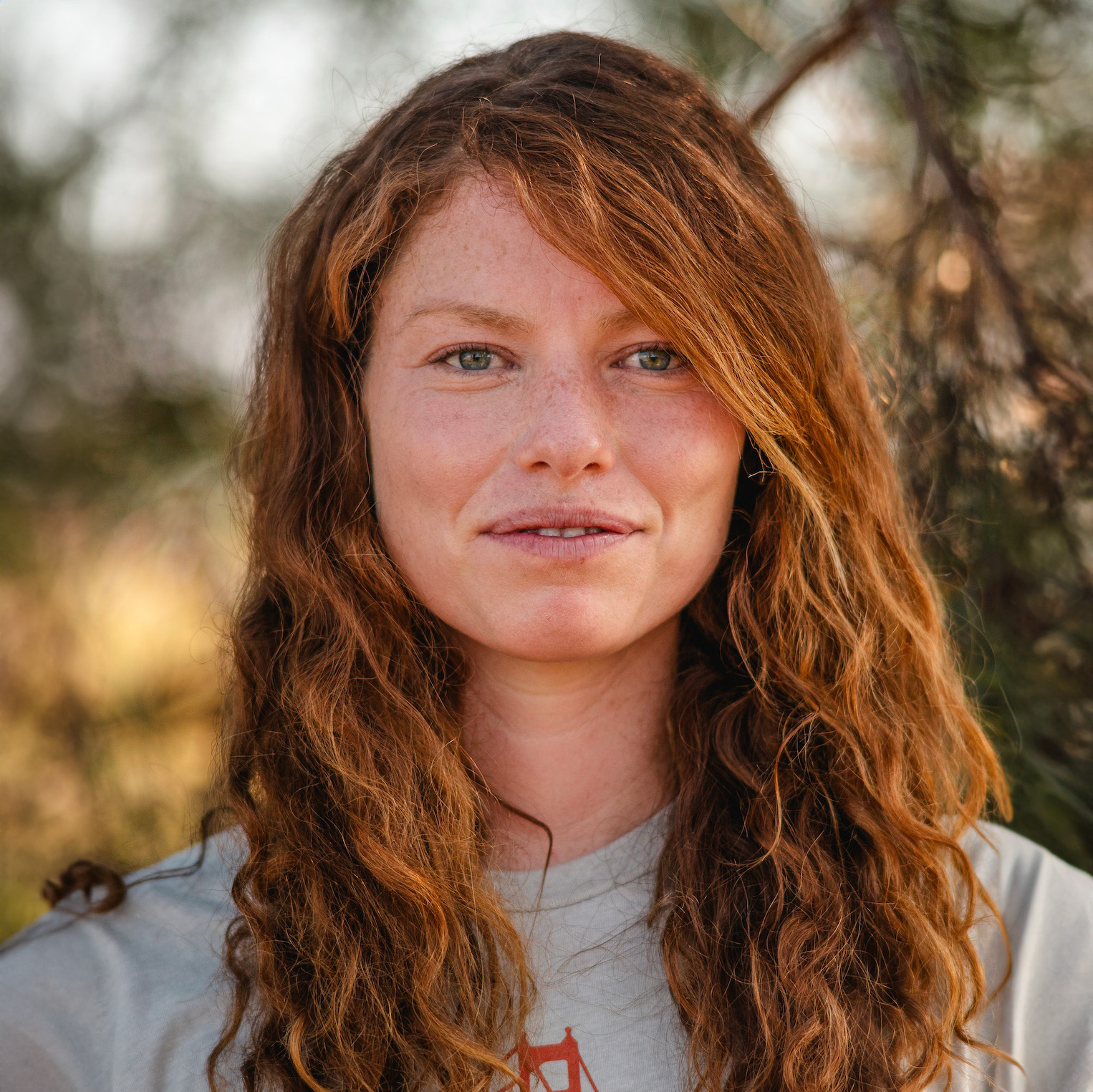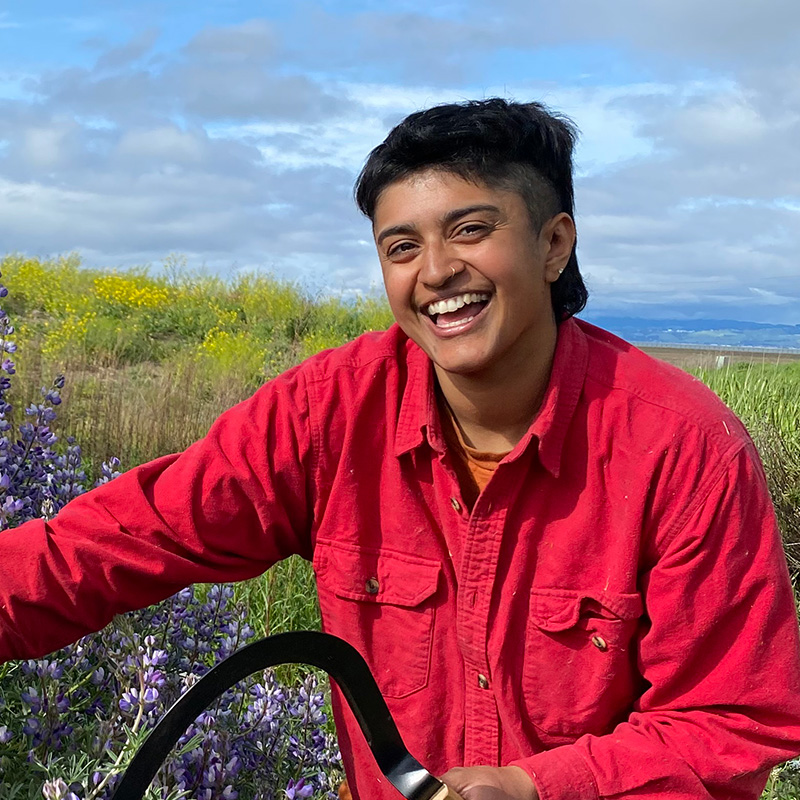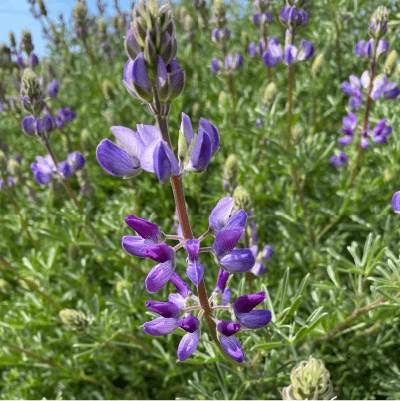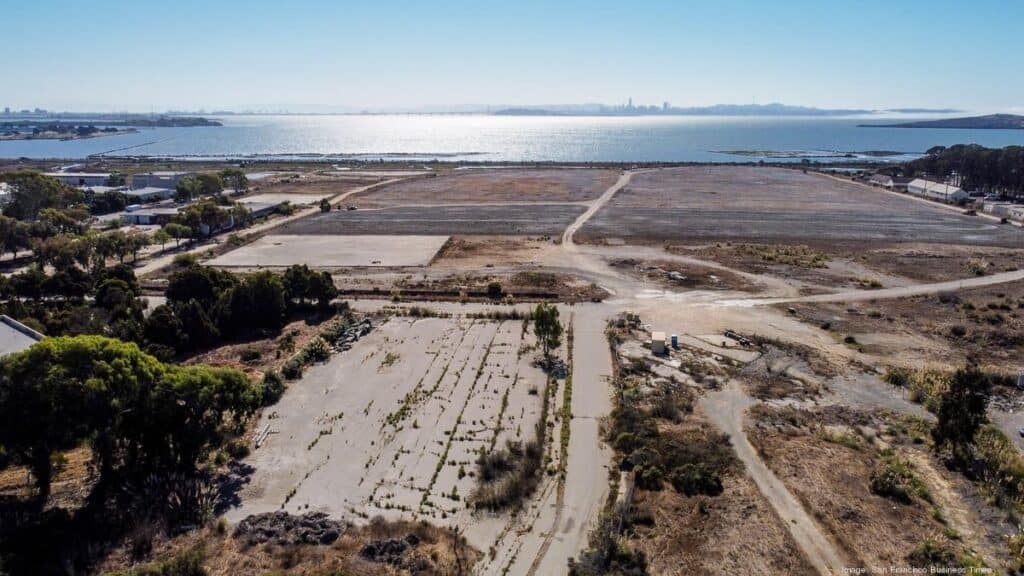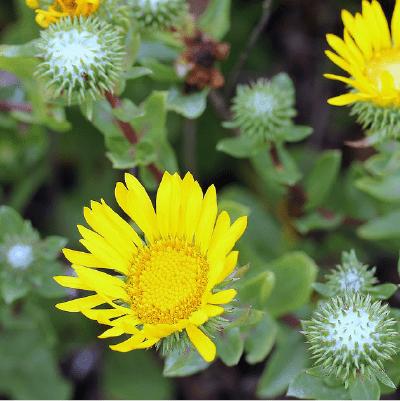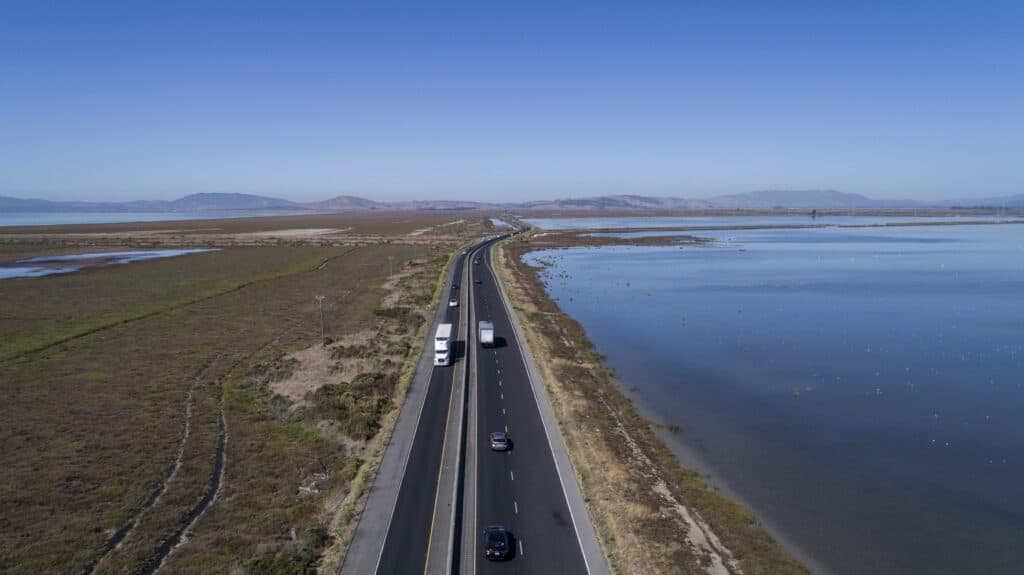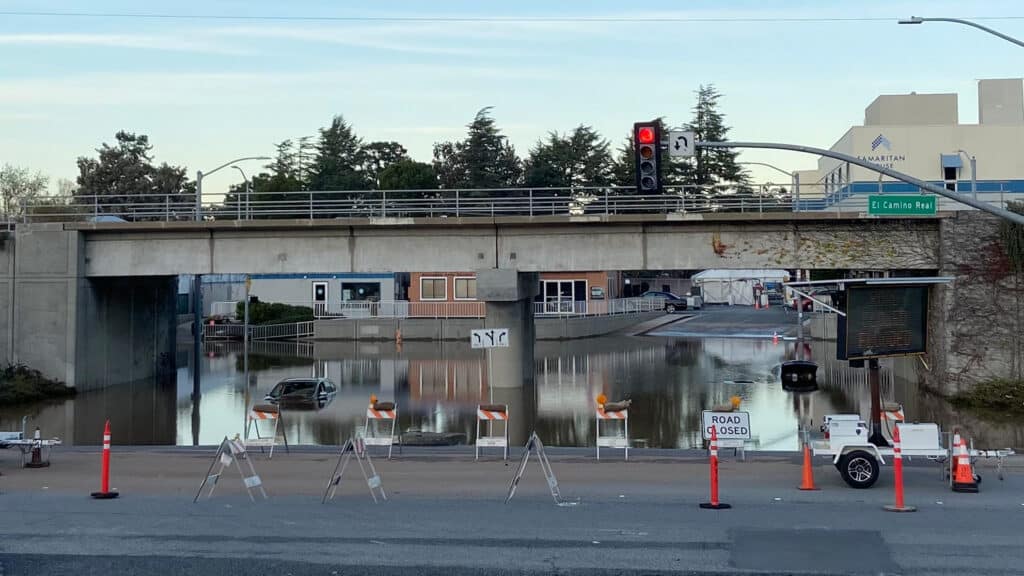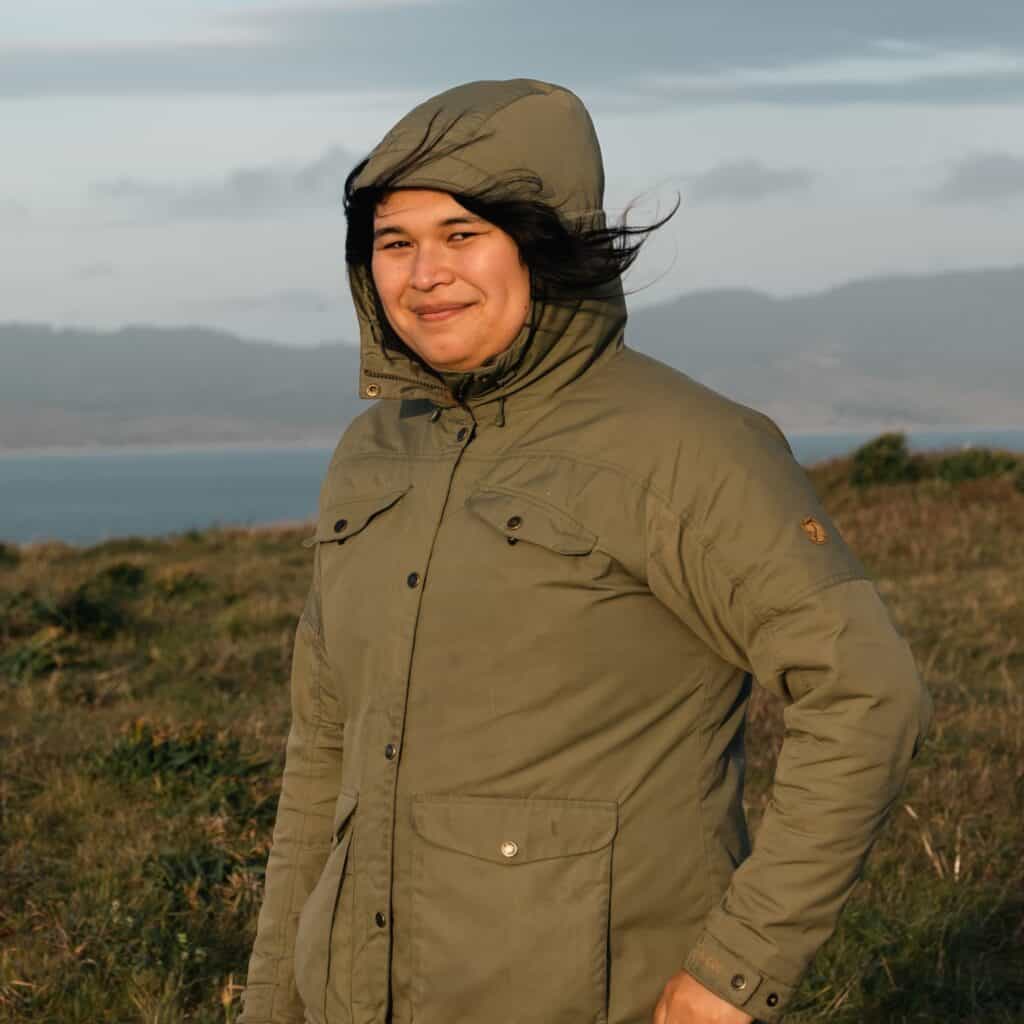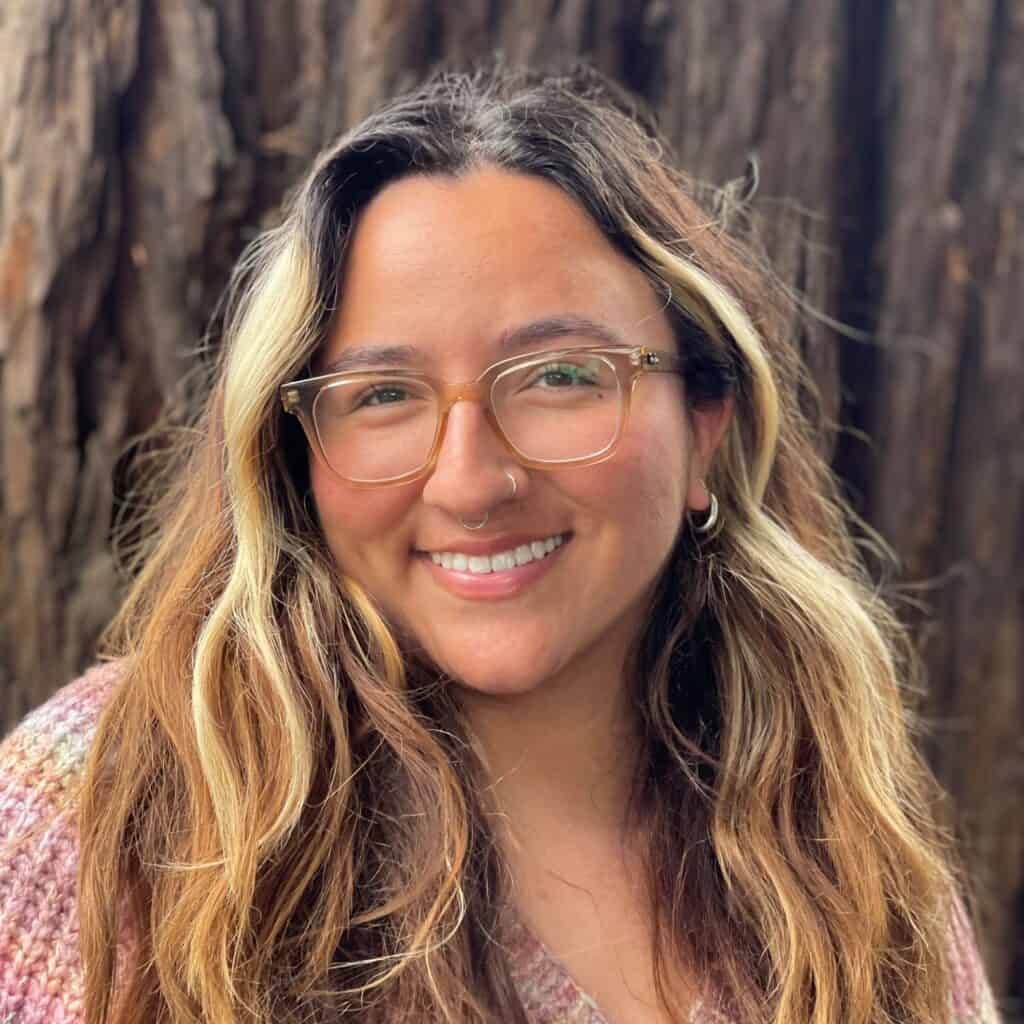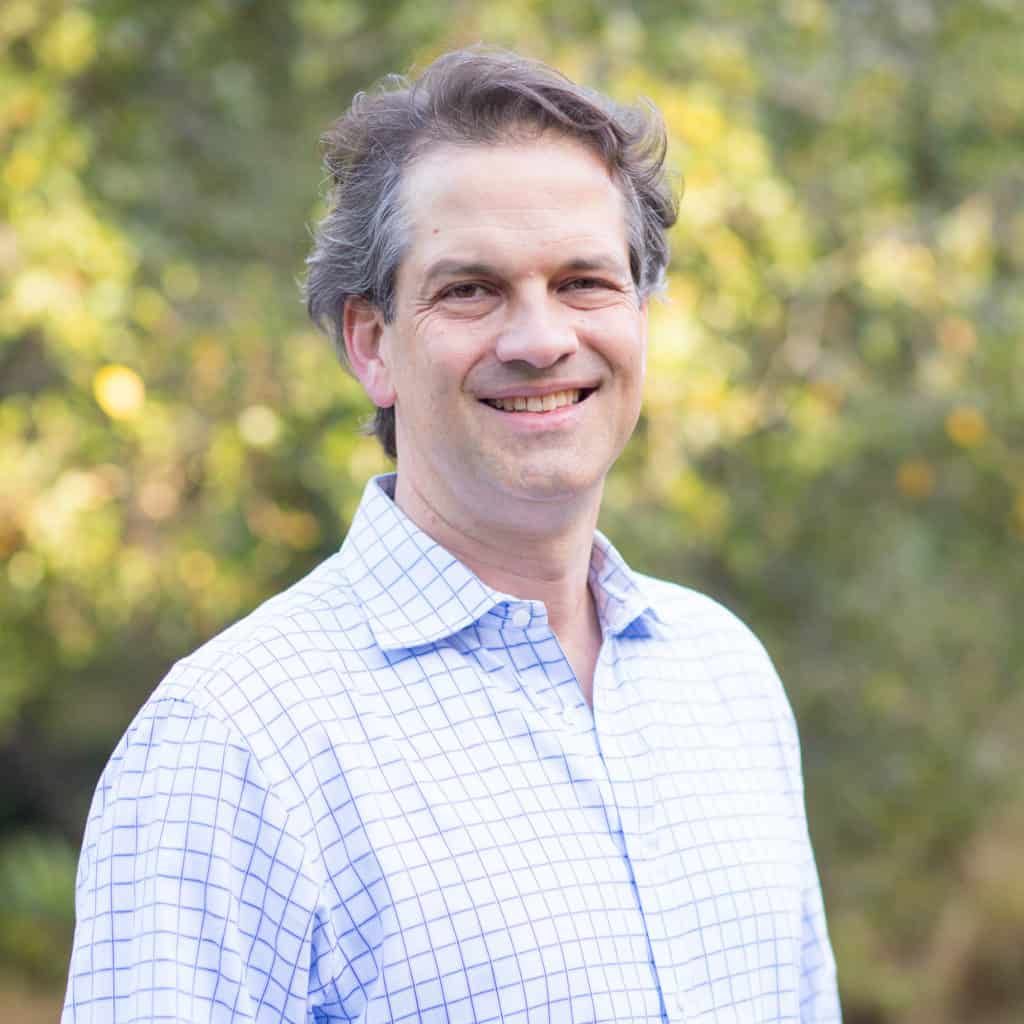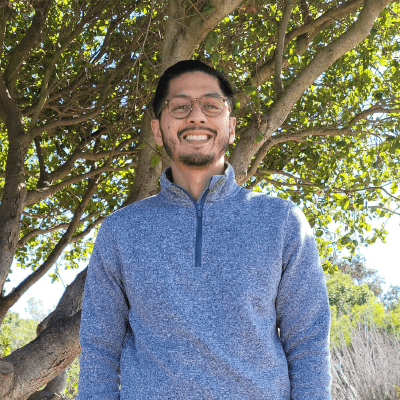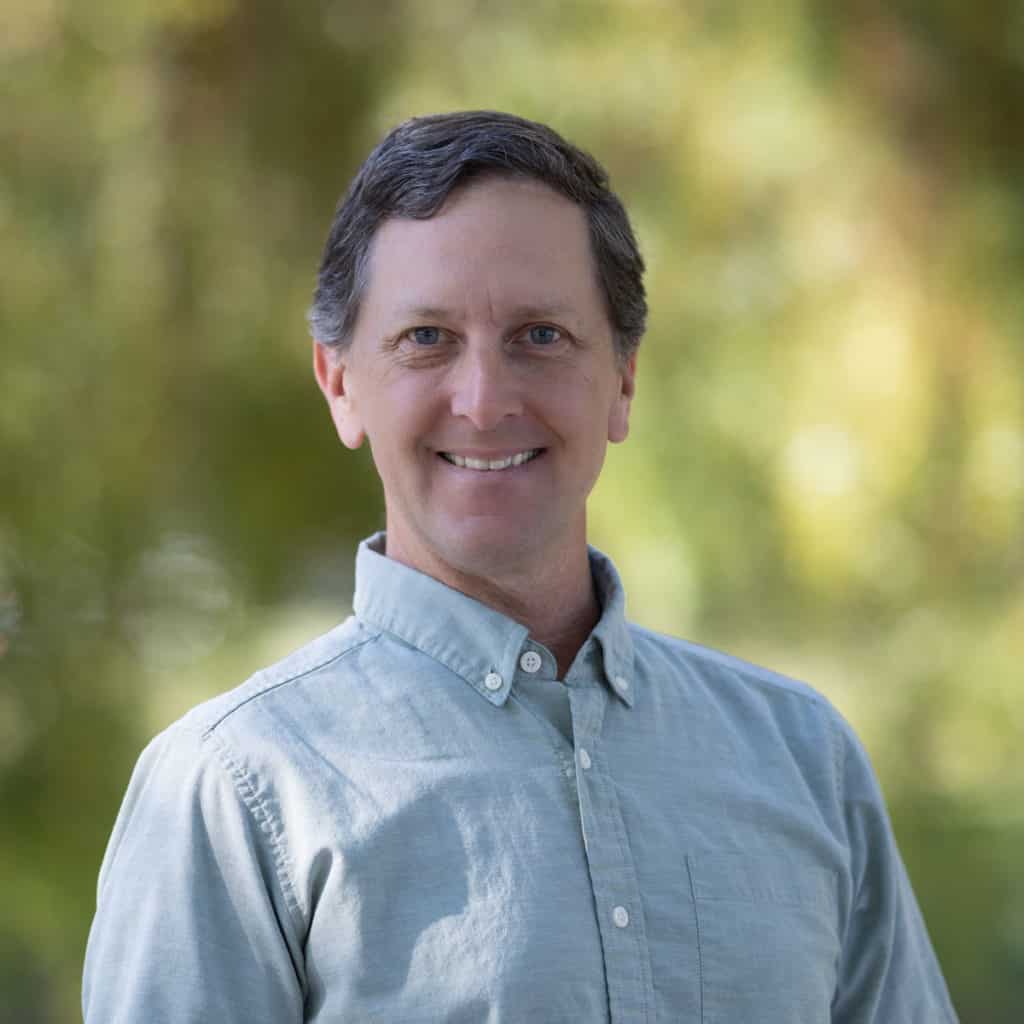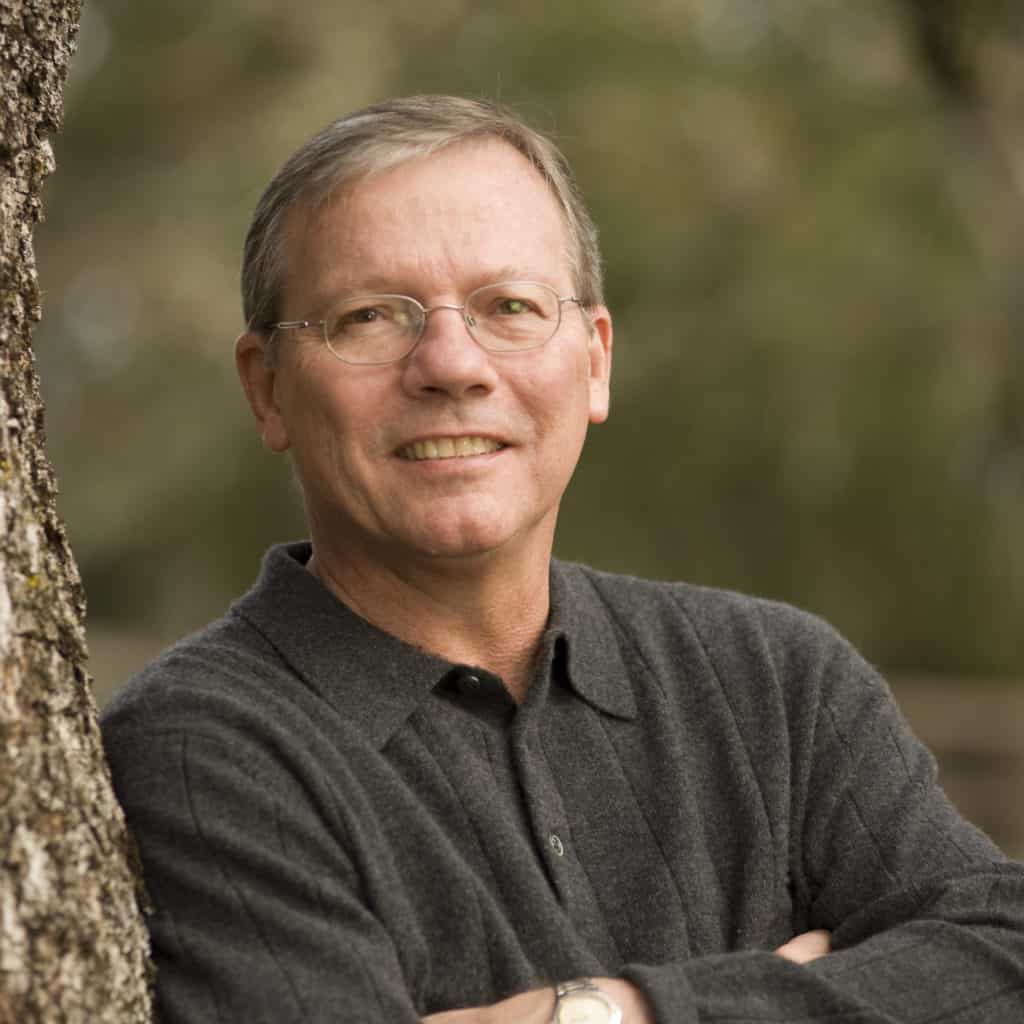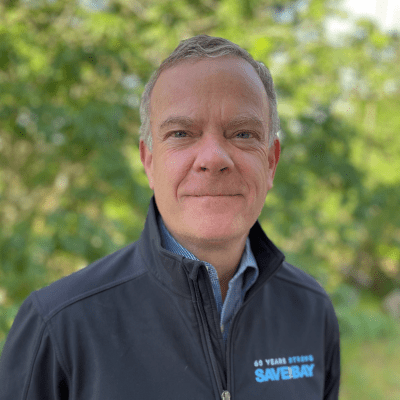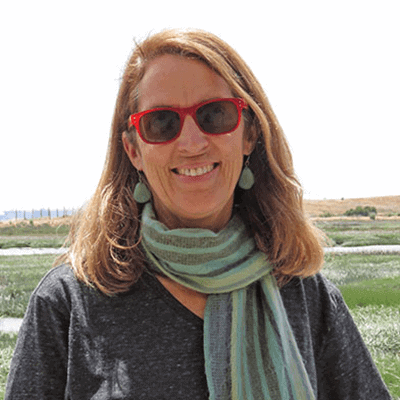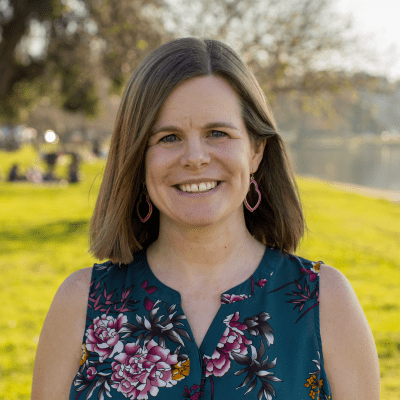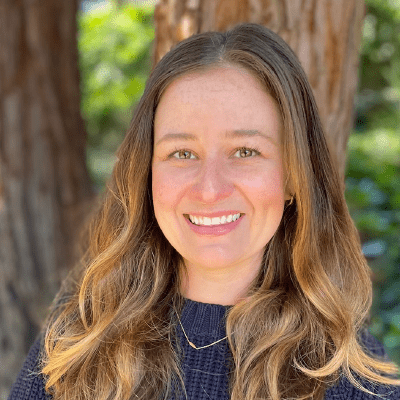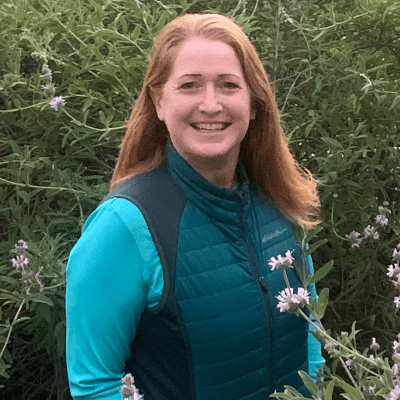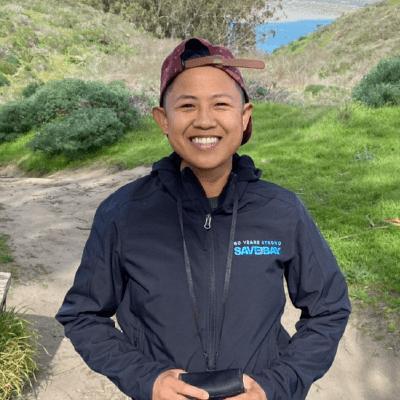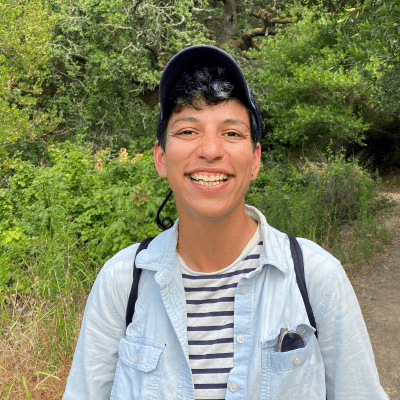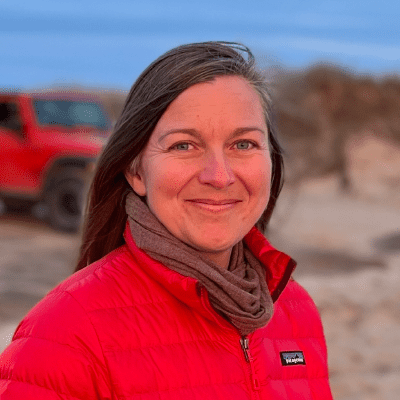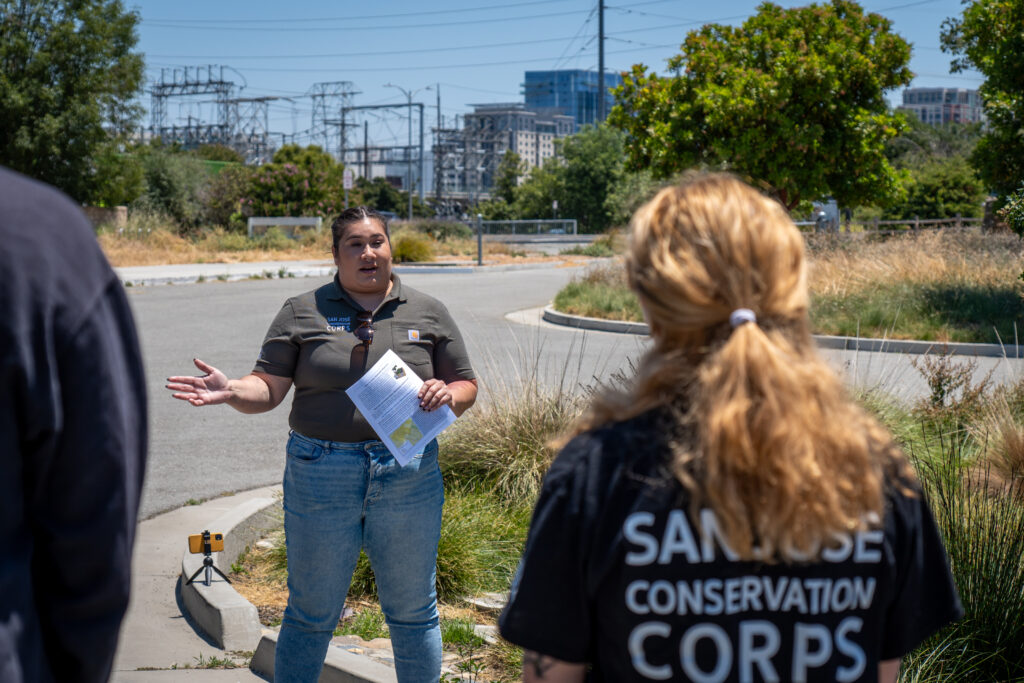
The San José Conservation Corps is a job training program for young adults who want to make “transformational change for our community and our planet.” Founded in 1987, it was one of the first urban conservation corps in the United States. It’s also providing an important solution to a chronic problem that cities face – the lack of funding to maintain urban greening infrastructure. Corps members build skills in areas like trash removal, landscaping, sidewalk repair, and invasive species removal while earning a living wage. They are divided into crews that are guided by a supervisor who trains and supports them. One of those supervisors, Matthew Straus, explained how he teaches crew members to use hand tools and serves as the middle person between the program and its partner agencies and organizations.
The City of San José has partnered with the Conservation Corps since its inception. In 2020, the city founded the Resilience Corps as part of the Conservation Corps to provide additional paid work opportunities for a living wage amid the COVID-19 pandemic. The Parks Department was able to hire corps members as interns in the Maintenance Department, reducing its 30% vacancy rate. Corps members then began to work on maintaining green stormwater infrastructure within city parks. “Green stormwater infrastructure (GSI) is a nature-based solution that introduces greening elements to stormwater infrastructure to curb flooding, filter pollution, reduce urban heat, improve air quality, and invest in community health and safety.” It is a critical solution that helps cities become more resilient to climate change.
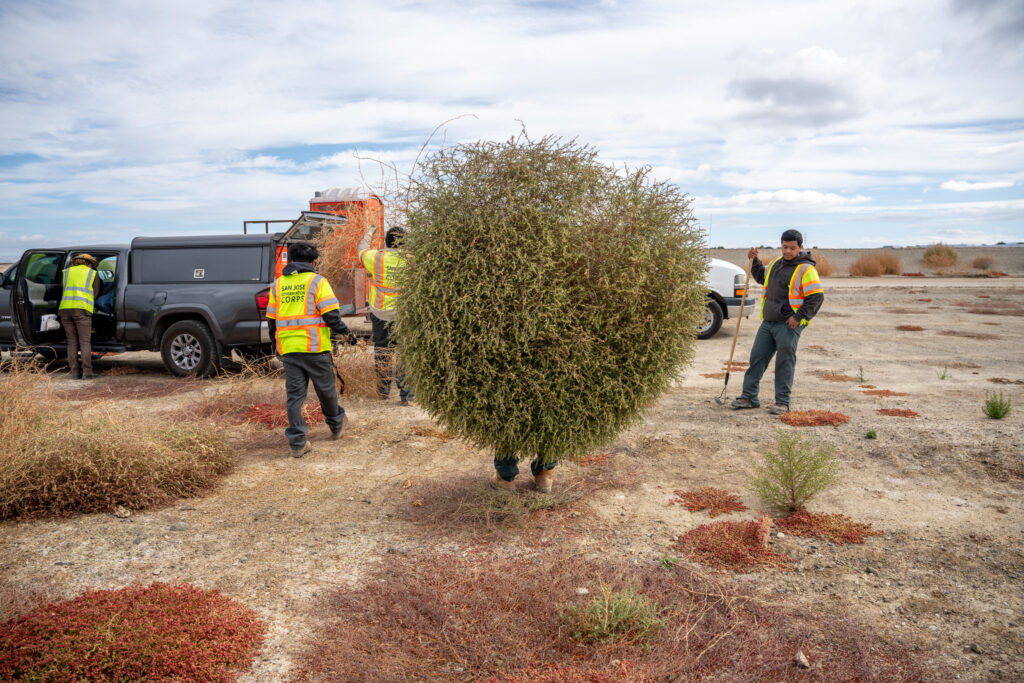

One of the biggest barriers to seeing cities implement more GSI is funding. The Department’s Resilience Corps creates a win-win situation for the city and the conservation corps. According to Torie O’Reilly, Division Manager of the San José Parks, Recreation, and Neighborhood Services Department (PRNS), Resilience Corps members work as interns in the Maintenance Department. They remove invasive species, plant drought-tolerant native species, and care for bioswale retention areas in areas that lack park staff to maintain them. She explained that maintaining GSI is labor intensive because all the work must be done manually with a certain type of mulch. It also requires removing trash that is captured by the plants. GSI is a fundamentally different way to manage stormwater–one that is based in nature, not in concrete–and government agencies are often reticent to fund new ideas. San José’s partnership with SJCC could provide a model for funding the maintenance of this innovative infrastructure design.
The Conservation Corps not only serves the important function of providing job training and skill building opportunities to young adults but also creates meaningful work opportunities for young adults who want to continue a career in environmental services or policy. Meranda Rouse has been a corps member since July of 2023. After taking AP Environmental Science in high school, she knew she wanted to get involved in conservation work because of her deep concern for local habitats that have been destroyed. She also wants to help mitigate the impact of climate change in her community. She reflected, “The Corps program has been a great entryway to field work and the community itself. Especially being newer to San José, it has also exposed me to people who care about the current state of local ecology.”
Torie has watched this program change lives. Because the program was built to overcome the barriers to employment that young adults experience, corps members get to experience what it is like to be independent but with support. The results speak for themselves. Phase One of the Resilience Corps resulted in an 81% retention rate of participants. And 91% of participants secured further employment or pursued higher education within three months of completing the program. “We encourage them to move up within our department,” she explained. After Phase One, eight corps members were hired for full-time positions, and seventeen were offered part-time positions in the department, as of September 2023.

Torie believes that this program can be implemented in other cities with enough intention, planning and direction. While training new corps members is required on a regular basis, the Parks Department continues to alter and expand this partnership to meet their changing needs.
Creative solutions like this partnership help cities become more climate resilient through maintaining vital green stormwater infrastructure, while deepening community ties in the process. Matthew Straus is proud to give back to the environment while mentoring local youth. “This is how you create meaningful change,” he said.
